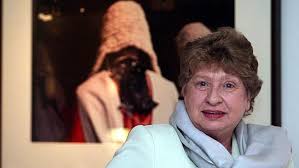Here’s part of the Australian Lawyers Weekly report about a recent panel of lawyers discussing gender inequality, sexism and euphemisms in the Australian legal sector. Unsurprisingly women are sick and tired of the “oh it’ll all level out” argument pushed at them by senior men in the law.
Well worth a read and more than once…
A panel of eminent lawyers and politicians to have achieved ‘women first’ milestones in Australia have lamented the barriers that still hold talented women back in the workplace and court room.
When Mary Gaudron QC was appointed to the bench of the High Court of Australia in 1987, after a distinguished term as solicitor-general of New South Wales, she made history as the first woman to ever do so.
Joining a panel of other Australian women to make a historic mark as ‘women firsts’ in their own right, the retired judge told an audience at the International Bar Association conference in Sydney that she was tired of euphemisms.
References to the so-called ‘gender pay gap’ and associated euphemism of ‘smashing the glass ceiling’ should be relinquished, Justice Gaudron said.
“I think it’s time we call it for what it is. It is discrimination pure and simple,” she said.
“And it is discrimination which seems to be intractable and incapable of resolution by the application of the anti-discrimination laws.”
Dame Quentin Bryce AD CVO, a legal academic from Queensland who went on to become the nation’s 25th Governor-General in 2008 and first woman appointed to the role, recited a favourite saying attributed to Justice Gaudron.
“My favourite quote of yours that I do so love is: ‘We got equal pay. Then we got it again. Then we got it gain, and we still don’t’ have it’,” the former governor-general said.
For the benefit of the international crowd, Justice Gaudron offered a chronology of the stop-start efforts in Australia to end the discrimination of unequal pay. She said that current figures showed that there was a 13 per cent difference in pay between men and women of equal seniority.
Despite the enduring disparity between the pay rate for men and women, the retired judge said that there was a clear reluctance to use Australia’s anti-discrimination laws in aid.
“The female [pay] rate is 87 per cent of the male rate,” Justice Gaudron said.
“Several times [an attempt to address equal pay] has been introduced. Starting with equal pay for women doing men’s work; and then allegedly equal pay for work of equal value.”
“The discrimination continues,” she added.
The panel was facilitated by a co-chair of the IBA Human Rights Institute, Baroness Helena Kennedy QC. The distinguished civil rights advocate, barrister and member of the House of Lords, discussed gender equality issues ranging from workplace discrimination and sexual harassment to violence against women and the discriminatory difference between pay for men and women.
Law Council of Australia president Fiona McLeod SC, federal Labor MP Linda Burney and Indigenous business woman and lawyer Andrea Mason also participated in the panel talk.
Echoing Justice Gauldron’s sentiments about the power of language and the importance of speaking plainly about the situation women faced in the workforce and society at large, Quentin Bryce said that it was because of prejudice the equal pay issue continues to this day.
In what was an illustrious career preceding her appointment to Governor-General, Ms Bryce served as a Federal Sex Discrimination Commissioner between 1988-1993 working for the Human Rights and Equal Opportunity Commission (as it was then known).
“Why don’t we use the word prejudice? Because that is what it is,” Ms Bryce said.
“There is endless explanations given about the issue of equal pay and about other areas of very blatant discrimination.”
Referring to an example that Baroness Kennedy gave about the reasons judges in the UK made for why more women were not appointed to the bench, she added:
“There are these stories where people say ‘Oh there’s no women who are suited for that’ and all sorts of excuses are made.”
“We just don’t call out what it is.”
Speaking of the context in the Australian legal profession, Ms McLeod said gender equality by way of equal opportunity, equal pay and promotion would need to be addressed in more pragmatic ways than they have been. She said that for too long, the legal fraternity relied on the assumption that the growing number of women entering law would even the playing field.
“You’ve got to have equality down through all levels – and that’s why it’s so important that we address things like the pay inequity, that we look at how we employ, how we promote, how we allocate work to people, how we brief people,” Ms McLeod said.
“We have to look at all of those issues right through all our systems because we won’t get there just by having super women at the top.”




